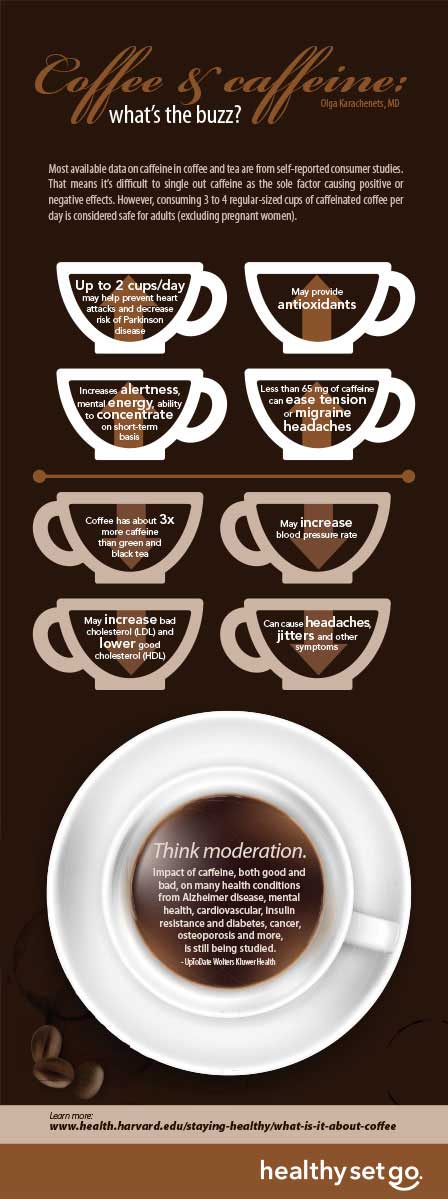
NOURISH
Coffee and caffeine: What's the buzz?
Posted June 1, 2015
Most available data on caffeine in coffee and tea are from self-reported consumer studies. That means it's difficult to single out caffeine as the sole factor causing positive or negative effects. However, consuming up to 400 mg (three-four regular-sized cups of caffeinated coffee depending on strength) per day is considered safe for adults (excluding pregnant women).
View text in alternative format.
Most available data on caffeine in coffee and tea are from self-reported consumer studies. That means it’s difficult to single out caffeine as the sole factor causing positive or negative effects. However, consuming 3 to 4 regular-sized cups of caffeinated coffee per day is considered safe for adults (excluding pregnant women).
Up to 2 cups per day may help prevent heart attacks and decrease risk of Parkinson’s Disease.
May provide antioxidants
Increase alertness, mental energy, ability to concentrate on short-term basis
Less than 65 mg of caffeine can ease tension or migraine headaches
Coffee has about 3x more caffeine than green and black tea
May increase blood pressure rate
May increase bad cholesterol (LDL) and lower good cholesterol (HDL)
Can cause headaches, jitters and other symptoms
Think moderation.
Impact of caffeine, both good and bad on many health conditions from Alzheimer’s disease, mental health, cardiovascular, insulin resistance and diabetes, cancer, osteoporosis and more, is still being studied.
Up-To-Date Wolters Kluwer Health
Learn more: www.health.harvard.edu/staying-healthy/what-is-it-about-coffee
-
Nutrition basics
Learn more -
Farmers market and budget friendly recipes
Order yours now -
Find a dietitian
Learn more
MORE ARTICLES LIKE THIS
Get fun, inspiring, provider-reviewed articles sent to your inbox.
Sign up for our email newsletter





